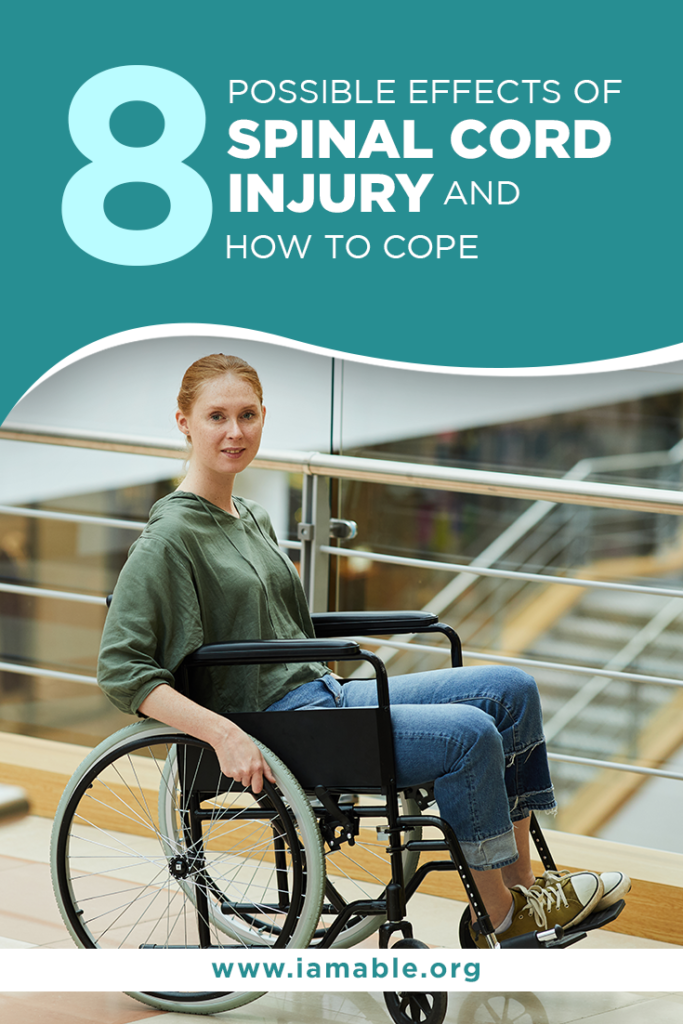Miami, FL 33186

Before you go to a Miami spinal cord injury rehabilitation center, learn the potential effects of a spinal cord injury so you can manage your plan better.
As someone undergoing a Miami spinal cord injury rehabilitation therapy, you might be curious about the worst possible situation that you might encounter. What are the potential effects of a spinal cord injury? How bad can they get? More importantly, what can you do to cope? Let’s look into the top 8 SCI complications below.
About 65 to 78 percent of patients who have SCI experience spasticity or uncontrolled muscle contractions. Some experience random muscle jerking, especially on the trunk or limbs. Others have hyper-reactive muscles, which causes spasms or muscle tightening.
Spasticity mainly occurs because of the damaged communication pathways between the muscles and the brain. As a result, it can potentially go away once your brain starts to rewire its connections.
It’s common to find patients undergoing a Miami spinal cord injury rehabilitation therapy who struggle with weight changes, especially during the first year of the recovery journey. A 2017 study explains that the BMI or body mass index tends to fluctuate for SCI patients because of the following factors:
As a result, developing an effective weight management plan becomes an essential part of a patient’s rehabilitation and recovery journey.
Besides limiting body movements, an SCI injury can also impact your sexuality. Depending on the level of damage to your spinal cord, you might experience a mild to a severe loss of sensation and sexual reflexes.
Many patients undergoing recovery from a spinal cord injury lose their desire for sex during the first few years. However, as the years go by and as you seek continuous care from your doctor, you might be able to restore arousal, fertility, and ability to reach orgasm.
Stomach ileus is another symptom observed in many SCI patients, especially those who suffer from intense vagus nerve damage. Studies explain that the vagus nerve regulates several internal organ functions, ranging from digestion to respiration.
Ileus or internal organ paralysis primarily manifests a week after an injury occurs. It can result in the overproduction of stomach acids, which could eventually lead to stomach ulcers. Patients and doctors need to work hand in hand to remove excess stomach acids.
SCI can increase your risk for osteoporosis. A 2020 study explains that the lack of mobility affects the active remodeling process, a crucial part of bone formation. The study also pointed out that patients with SCI tend to have an increased level of sclerostin, a protein that inhibits the formation of bone cells or osteocytes. This results in less dense and more brittle bones.
A spinal cord injury, especially along the neck or upper back, can result in bowel incontinence. You might lose control of the following bowel functions:
Sometimes, bowel incontinence due to a spinal cord injury may require specific medical procedures such as anal irrigation to reduce constipation and promote a smoother or healthier bowel movement.
A lot of things can happen to a patient with a complete or incomplete spinal cord injury. The first noticeable effect is immobility, leading to many lifelong health concerns such as pressure ulcers.
About 3 to 4 out of 10 patients develop pressure ulcers because of SCI. While it can happen to any patient with a spinal cord injury, statistics show that those with higher-level spinal damage tend to have a higher risk for pressure ulcers.
It’s also a widely observed problem among patients looking for relief through Miami spinal cord injury rehabilitation therapy.
SCI patients are no stranger to pain, most especially chronic pain. Most of the time, people diagnosed with SCI struggle to identify the root cause of their pain.
That’s because it can affect various parts of the body, besides the muscles and joints. For example, some patients report pain in their internal organs and nerves. Others say they suffer from autonomic dysreflexia or the sudden onset of chronic headaches.
The majority of the patients also find very little relief from their discomfort even after taking strong or high doses of pain relievers.
According to a study, chronic pain mainly occurs because the thalamus fails to function correctly. Consequently, this results in heightened sensitivity to touch or pain.
Having a spinal cord injury comes with plenty of challenges and uncertainties. It could cause some of the complications we noted above. As a result, you may need to be extra careful in planning your recovery phase.
For starters, it would help to keep in touch with your primary healthcare provider constantly. This way, you can catch signs of possible SCI effects before they get worse. You might find it helpful to maintain a positive outlook during your recovery journey. And, on top of all that, you can also benefit from seeking Miami spinal cord injury rehabilitation therapy as soon as possible.
Indeed, living a fulfilled and happy life after a spinal cord injury is not an impossible feat. With the right people around you and medical intervention, anything is possible.
Want to unlock the techniques on how to keep moving forward after a spinal cord injury? Get a copy of our book on the 7 Steps to Thrive After Paralysis today!
Grab our free e-book 7 Unbelievably Important Steps to Take to THRIVE after Paralysis by clicking the image below.
